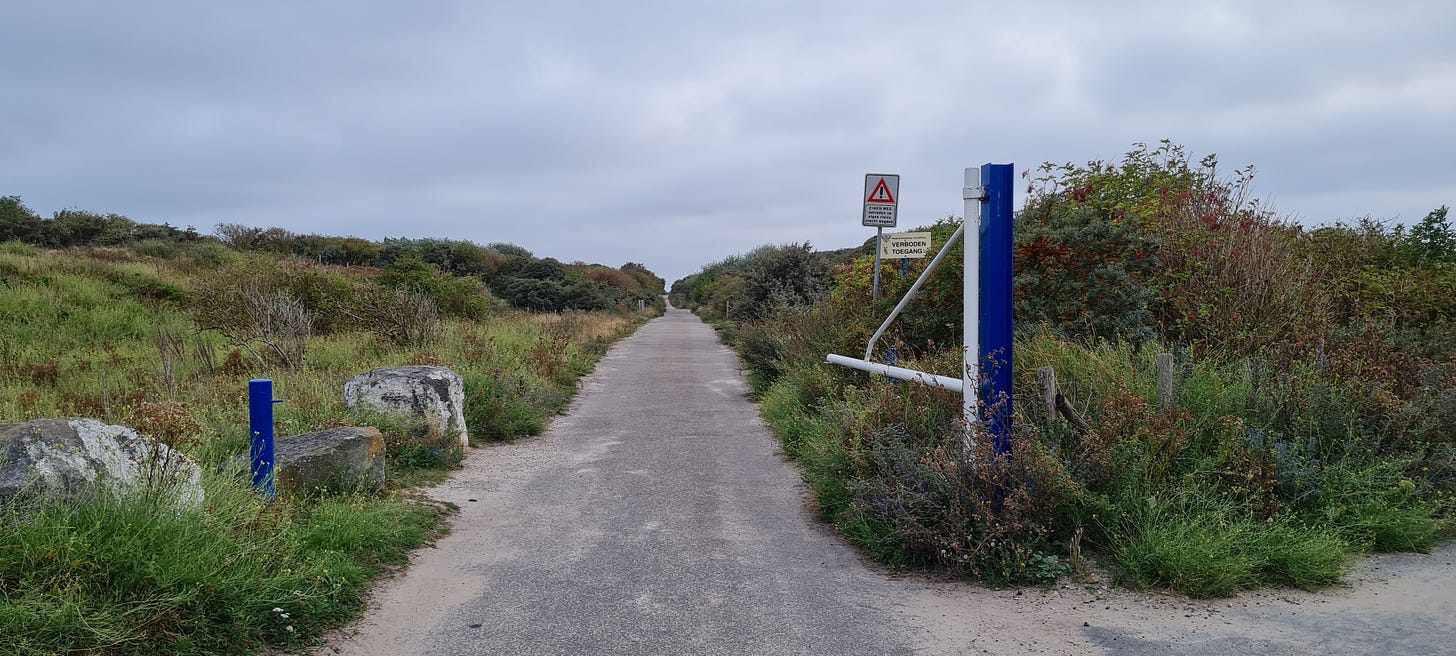The gatekeepers
Your weekly dose of fresh poetry #104
Somebody
was standing at the gate.
Somehow they did not let me in, so
I built my own with an
open gate.
Like many other poets, I have submitted my work to be considered for publication. It’s a very vulnerable thing to do. You open yourself up to disappointment and a sense of failure. Often, you get a standard rejection, which feels like your work of art was not even looked at seriously. For many poets, this is a very painful thing. It can hurt. Hard. They see it as a sign that their work is not good enough. But that is not what it is.
For me, it’s about gatekeeping. The editors are not judging whether your poem is good or not, they are assessing whether their audience might like it. Maybe, your work is not for that audience. That’s okay. It’s still good, but others might like it more. With this magazine, I want to create a stepping stone and a hub of discovery. That is why I always link to three poems elsewhere at the bottom of the Friday fresh poetry post. And also why I am working on this weekly inbox magazine. To have a space for my own poetry. I want to share that space with others. Do you think I should? Let me know in the comments.
In the photo above: an open gate in the dunes near the sea in The Hague.
Something to listen to
Some of the poems published here are also available in audio format. The collection #trpplffct readings contains readings of 25 poems. Like this one:
As you know, I really like the poetry readings by Sunil Bandari. And this one is a real gem. Enjoy I Love You:
And of course, the August playlist that helps you escape reality and drift away on the tones of wonderful songs.
Poetry elsewhere
Despair is a collection of poems with despair at their heart. The poet, who goes by the name of smoothie, asks for compassion and understanding for people who live in despair. For those who don’t, the poems offer a peek into the world of those who do. I think this one is a good example. Please read “Z7”.
There are so many expressions you can use to say things. But it gets interesting when these expressions are just slightly turned or twisted or tilted. Like James does in this sonnet Of Walt, the runaway, & my fire-lock lean’d I hear:
Another form of gatekeeping: commenters that have the need to say something negative about your work. I don’t really like that idea. Of course, there are poems I do not like. But that is just my opinion. It means the poem is not for me. I would not say of a poem that it is bad. Or shit. Some, apparently, say 90% of what you create is shit. In fact, that seems to be the gist of Sturgeon’s Law. Poet Patricia Finney gives that a positive twist in the poem that follows. I still don’t agree. My first principle is that if there is one person that values (any part of) your work, that is all the proof needed to establish its quality. My second principle is that practice makes perfect and therefore every bit you create is a step towards total mastery. You pick what you think applies to you. And how. Then, read the poem by Patricia Finney A Year’s Supply of Poetry:





Loved the ideas you've shared here.
It's especially powerful considering that you are someone who walks the talk and definitely provides your platform to poets around the world. You're an inspiration, Arjan! 🙌
There’s so much I want to say in response to this post! The first is, YES, please open your series to others, that would work in the tritriplicata form. Be your own gatekeeper.
I’m cycling the boys to child care first, then want to write some thoughts on gatekeepers and shit work. But I’m glib, so this comes first.